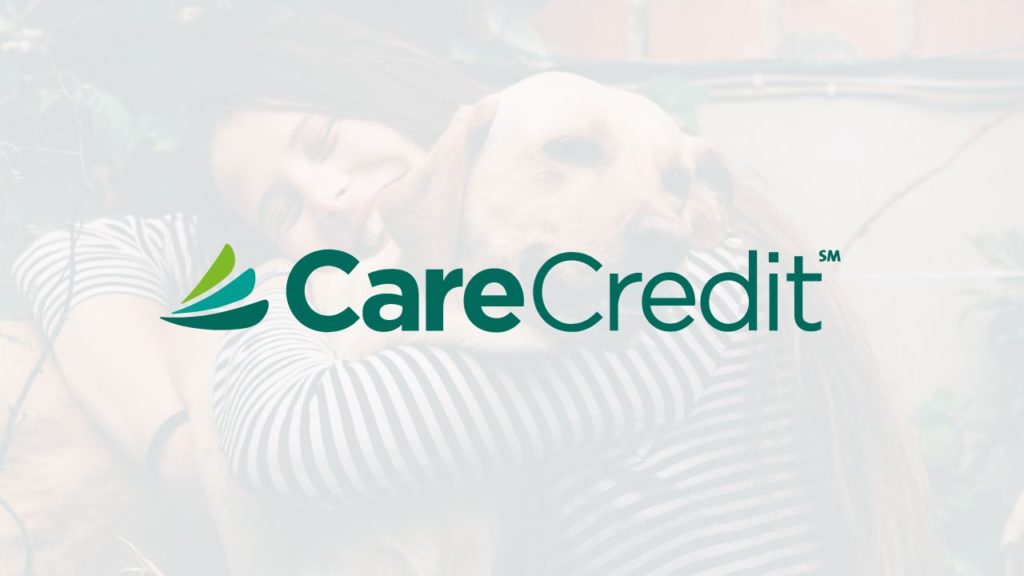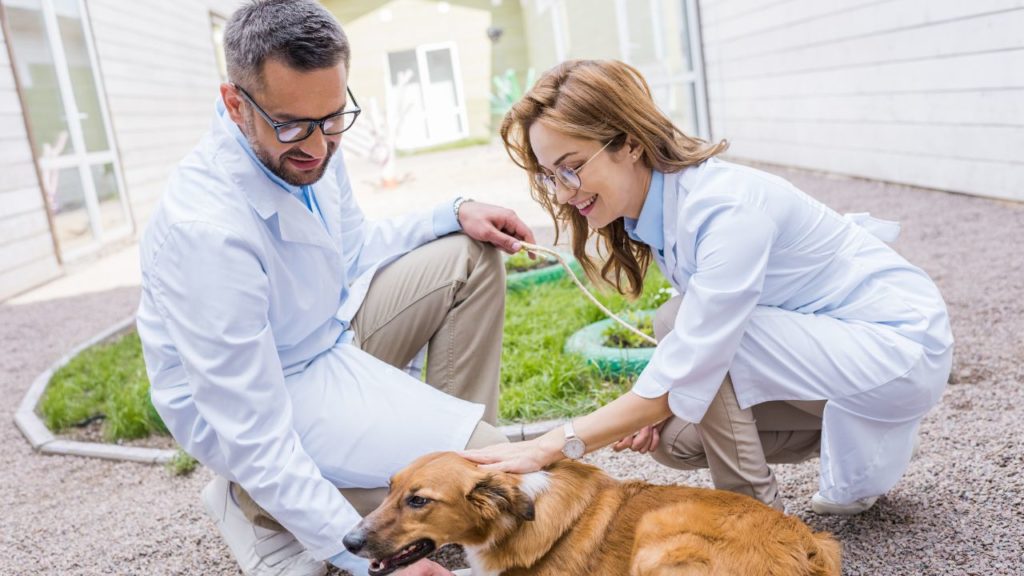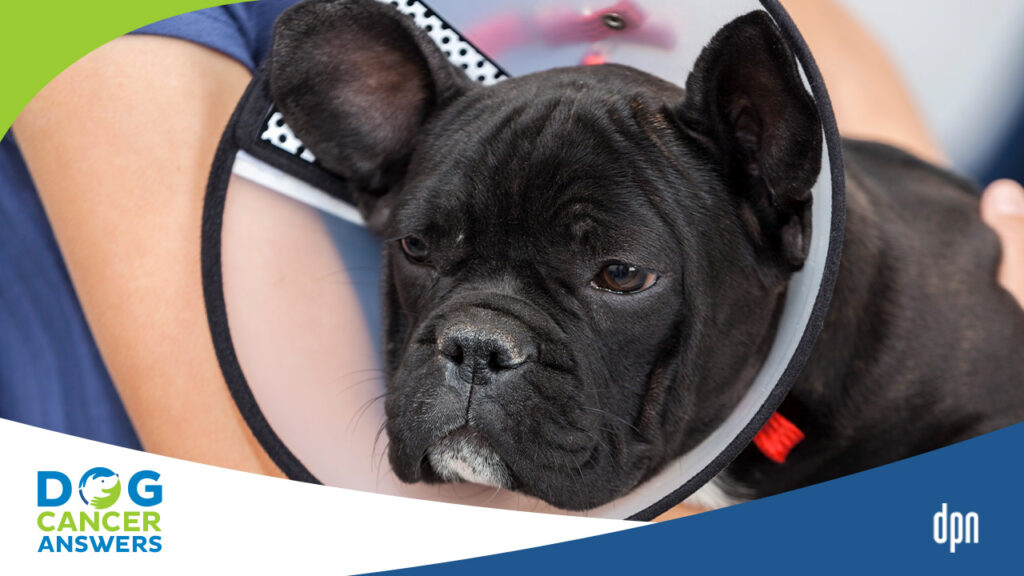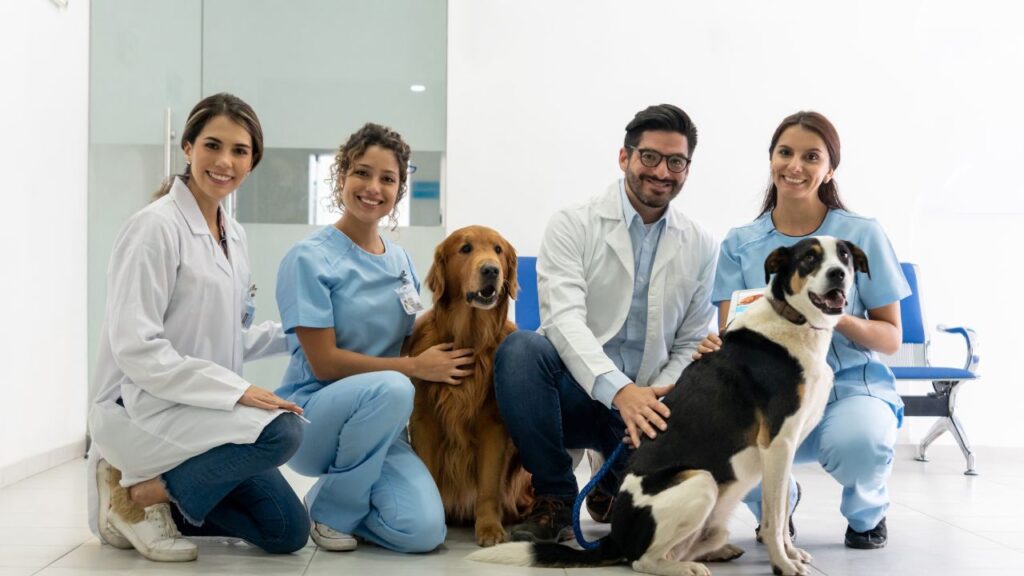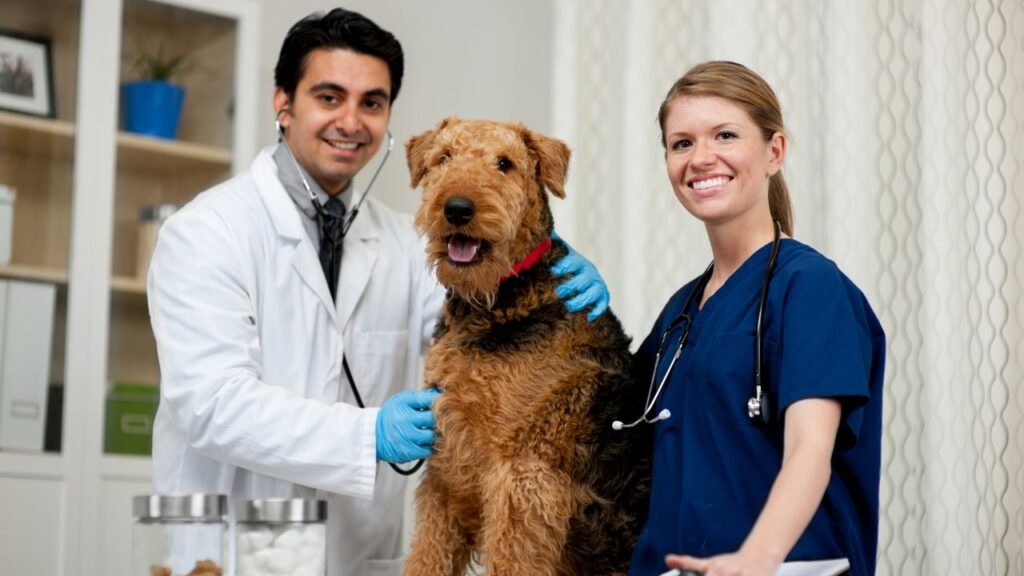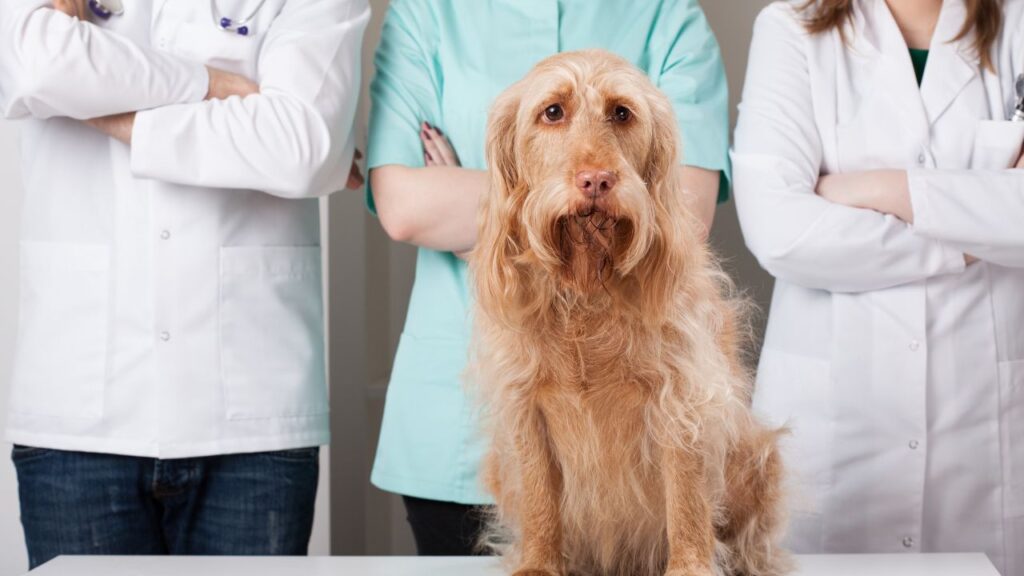A cancer diagnosis is overwhelming and confusing. Asking the right questions up front will help you understand all the options so you can make the best decisions you can for you and your dog. Looking back, you will know you did the best you could.
Key Takeaways
- Depending upon the cancer diagnosis and treatments, dogs can live well and for a relatively long time with cancer.
- Veterinarians use many tools and diagnostics to determine if a dog has cancer, from physical exams to blood work to imaging tests.
- Ask your veterinarian about your dog’s cancer type, how it was diagnosed, and what other diagnostic tests are available.
- Discuss the available treatment options, including surgery, chemotherapy, radiation, and non-conventional treatments, and ask questions about the associated risks, benefits, and costs.
- A great question to ask your veterinarian about every option they give you is how much good life quality time do you think this treatment will give my dog?
Don’t Be Afraid: Ask Your Vet Questions!
There are so many questions to ask your vet about dog cancer, and most of them will probably occur to you long after you leave the office. Veterinarians understand that questions arise later, especially as you learn about dog cancer.
Whether you call in with your questions, send an email, or schedule an appointment to follow up, this article will help you think through your questions and get organized.
You Are Your Dog’s Advocate
Remember, you are your dog’s advocate, and you can only decide what is best for your unique situation and individual dog if you are well informed.
Ideally, your veterinary team will cover all the information you need at each journey stage, but cancer journeys are rarely ideal. It is always best to get clarification and ask as many questions as needed to understand what you and your dog are facing.
Below I list some questions about diagnosis, pain, surgery, and other important topics. As you read on, keep in mind the following:
- These lists are in no way exhaustive.
- Not all of these questions will be important to you or applicable to your situation.
- Consider my questions a guide, a place to start thinking about what questions you need to ask your veterinarian and/or veterinary oncologist.
- Getting clear answers to these and any other questions you have makes your tough decisions that much easier to make.
When to Ask Your Veterinarian Questions
Any time you are confused or uncertain, it is absolutely okay to ask questions!
And remember, if a veterinarian asks another member of their staff to answer your questions for you, it’s not because they don’t care. It could be for one of many reasons:
- They may be in a tough surgery or handling an emergency.
- The other staff members may be better at explaining things to dog lovers in plain language.
- The other staff member may have been the person who has been handling your dog the most.
You can always ask the staff member to confirm an answer directly with the veterinarian if they can’t personally come to the phone or into the exam room.
Veterinary oncologist Megan Duffy explains the financial side of cancer treatments on this episode of DOG CANCER ANSWERS.
Questions About the Diagnosis
If your veterinarian suspects your dog has cancer, getting a definitive diagnosis is essential for understanding your treatment options and the prognosis.
- Without knowing what type of cancer you are dealing with, it’s tough to know how to treat it.
- There are so many diagnostic tests and processes for diagnosing cancer it can be hard to understand what is most important and why.
- Tests are important for treatment planning. However, they are also expensive, and you might want to save money for treatment if your budget is tight.
To better understand your dog’s diagnosis, here are some questions that may be helpful to ask your veterinarian:
- What type of cancer does my dog have? How did you make the diagnosis?
- Has it spread?
- What tests have you run, and what other tests are available?
- Are there more advanced testing options that would be helpful?
- Where can I find more information about this type of cancer besides DogCancer.com?
- Should I get a second opinion?
If your veterinarian wants to run more tests, consider the following:
- What is the value of the information gained from this test you want to run?
- Will it tell us something new, something we don’t already know?
- Will the results of this test change the treatment plan for my dog?
- Will this test change the prognosis or expected outcome?
- Are there any risks of performing this test on my dog?
Questions About Dog Cancer Treatments
Once a diagnosis is reached, the next step is to discuss treatment options.
Treatments can also be confusing because there are often various options, each with its own risks and benefits.
- There is rarely only one treatment option to pursue, and sometimes a combination of treatments is the most beneficial.
- Viable treatment options will differ between families, too, as everyone’s situation and threshold for cancer care is unique.
The following questions may help you decide which treatment(s) are best for you and your dog.
Surgery
- Is surgery an option or recommended?
- If surgery is an option, how long is the recovery period, and what do I need to prepare for?
- Is surgery curative (cures the cancer) or palliative (helps to delay the inevitable or reduce cancer but doesn’t get rid of it completely)?
- How much do the surgery and follow-up care and appointments cost?
- How will this surgery affect my dog’s quality of life?
- Will my dog need other treatments as well as the surgery?
- What do I need to do to prepare for surgery?
- How long will my dog need to be in the hospital after surgery?
- What are the most common complications with this surgery?
- How much good quality time do you think using this treatment will give me with my dog?
Chemotherapy
- Is chemotherapy an option or recommended?
- What chemotherapy protocols are effective for this type of cancer?
- What specific drugs, single or multiple, are used, and how are they administered?
- Is metronomic therapy an option)?
- What are the common side effects, and how can I be prepared for these?
- Is chemotherapy curative or palliative?
- How often will my dog need treatment?
- How will this affect my dog’s quality of life?
- Are these drugs dangerous to me or my family? Will I need special equipment to handle medications at home or clean up after my dog (latex gloves, etc.)?
- What is the cost per treatment and expected total cost?
- How much good quality time do you think using this treatment will give me with my dog?
Radiation
- Is radiation an option or recommended?
- Is radiation curative or palliative?
- What are the common side effects?
- How often does my dog need treatment?
- How will this affect my dog’s quality of life?
- Are radiation treatments painful?
- What is the cost per treatment and expected total cost?
- How much good quality time do you think using this treatment will give me with my dog?
Other Treatments
- Are there non-conventional treatments that can help this type of cancer or improve my dog’s quality of life (such as acupuncture, rehabilitation, or supplements)?
- Are there likely to be additional treatments, medications, or dietary changes needed to manage the effects of conventional treatments?
- Should I make any changes to my dog’s diet?
- How much good quality time do you think using this treatment will give me with my dog?
Questions About Pain Management
One of the biggest concerns of most dog guardians is whether their dog is in pain, and with good reason. Signs of pain in dogs are well documented but may easily be confused with other behaviors.
Asking your veterinary team more about your dog’s pain level can help you be prepared to address it if needed. Some questions to ask include:
- How do I know if my dog is in pain?
- Is this cancer likely to cause pain?
- What are the options for treating my dog’s pain?
- Are any of the treatments potentially painful? Can we prevent that pain from occurring?
- If my dog’s pain becomes worse than usual, what do I do?
- Will pain medications interfere with cancer treatments or vice versa?
- What are the non-medication options for managing pain?
Pain Specialist Tasha McNerney untangles pain management post-surgery for listeners on this incredibly helpful DOG CANCER ANSWERS episode.
Questions About Your Working Relationship
Knowing what to expect from your veterinary team can play a huge role in maintaining a good working relationship and having the best possible outcome.
Understanding their availability, how they will share information with you, and your financial obligations may provide additional peace of mind during this stressful time.
Some important questions for your veterinary team are listed below.
Availability
- Which team members will I see on each visit? Will they be the same each time, or will I frequently see different doctors?
- What is the best way to contact your team with questions or concerns (email, phone, etc.)?
- Do you do telehealth appointments?
- When should I expect to hear from you regarding test results, etc.?
- Can I reach your team outside of regular business hours?
Costs
- What is the cost of each test or treatment?
- What is the expected total long-term cost?
- What other treatment options do we have, and how much do those cost?
- When is payment expected?
- What are the options for financial help (if needed)?
- Do you take medical credit cards like CareCredit?
Other Questions
- What do I do if there is an emergency? Where is the nearest emergency facility?
- What are my options for end-of-life or hospice care?
- How will I know when it is time to consider end-of-life or hospice care?
Do you have additional ideas for questions to ask your vet about dog cancer? Tell us, so we can add them to this list and help future dog lovers just like you.
Dr. Lauren Barrow has a compassionate strategy for talking with her clients about finances. Not just because of her veterinary experience, but because of her experience as a mother of a child with brain cancer. A special episode of DOG CANCER ANSWERS.
Topics
Did You Find This Helpful? Share It with Your Pack!
Use the buttons to share what you learned on social media, download a PDF, print this out, or email it to your veterinarian.

